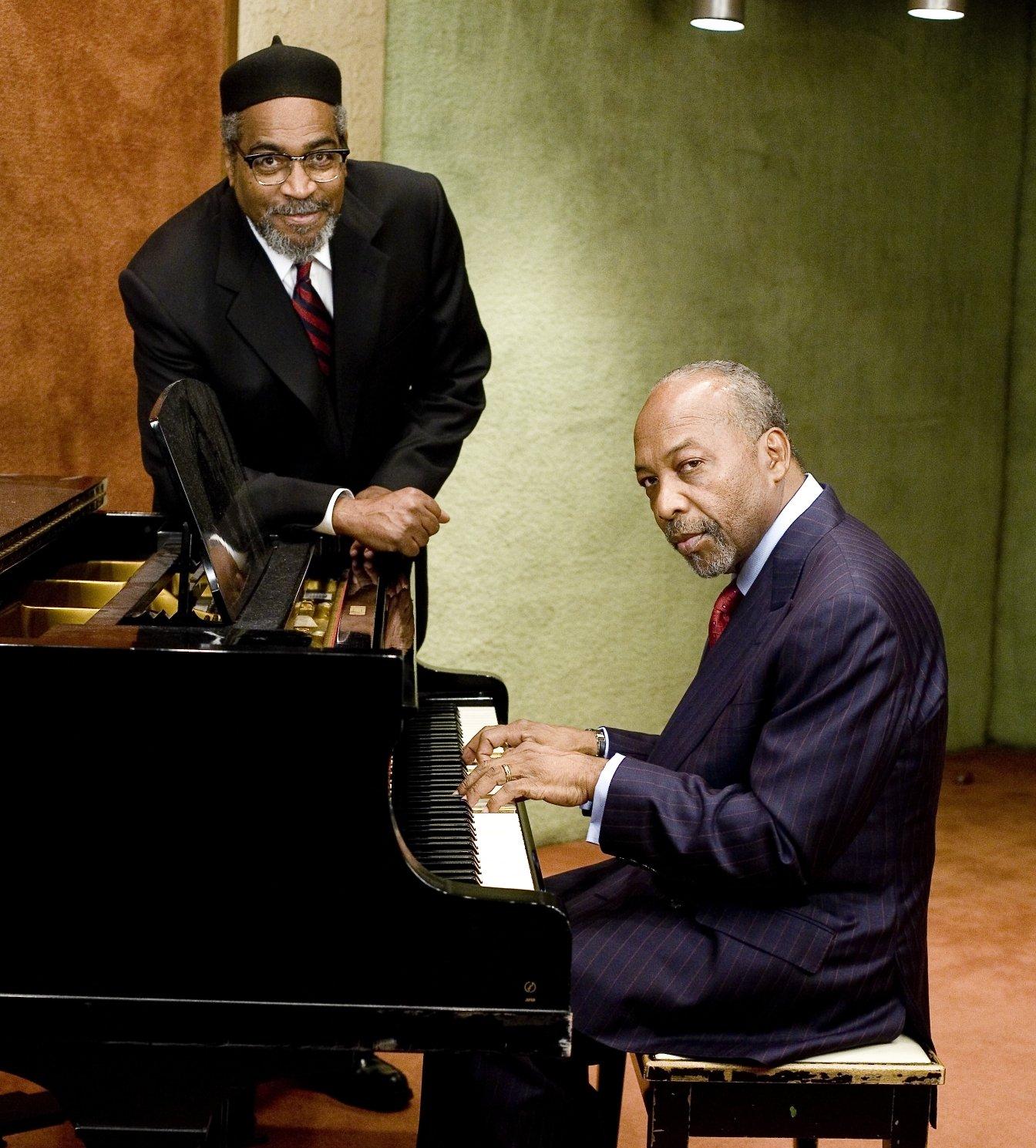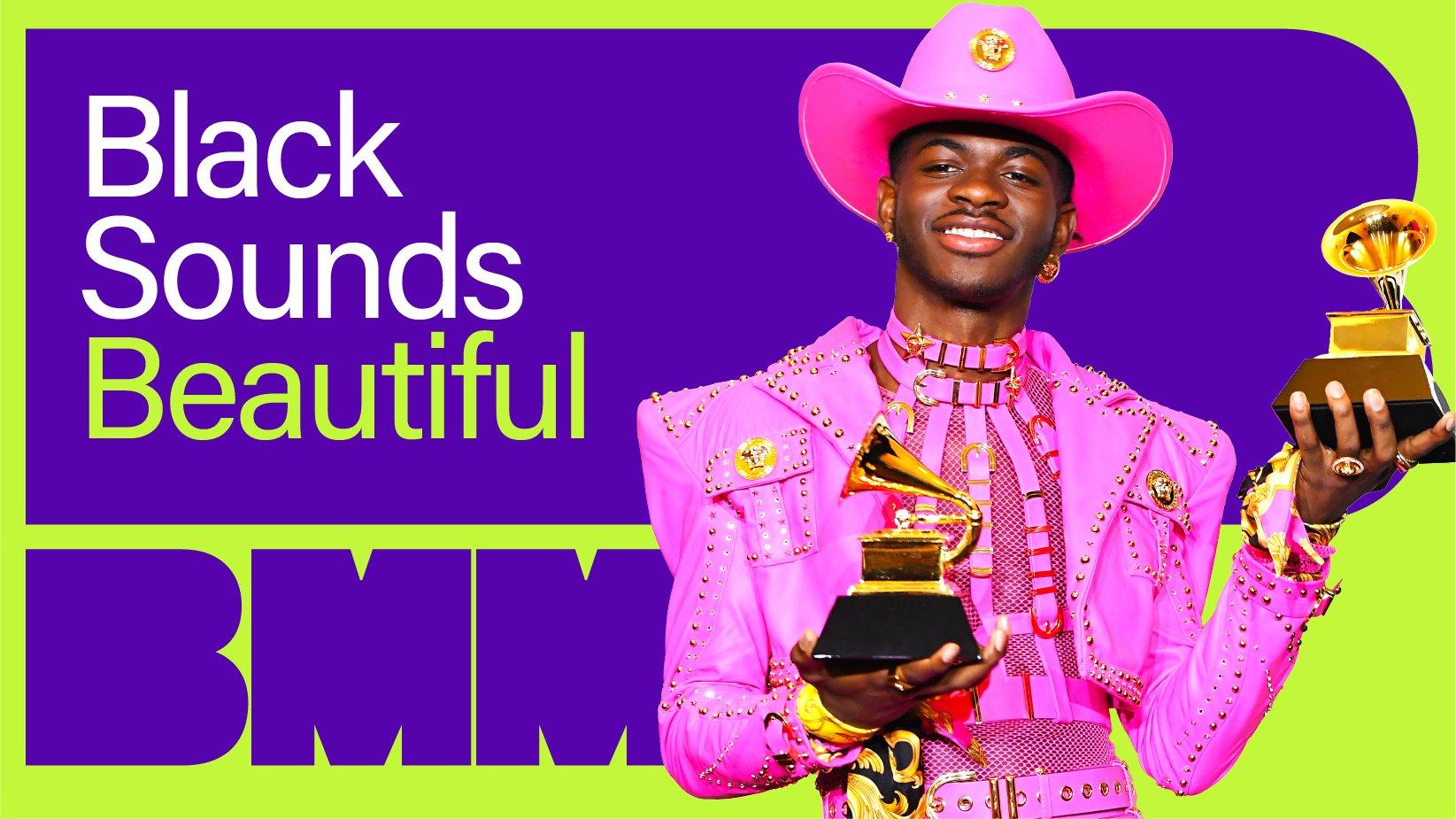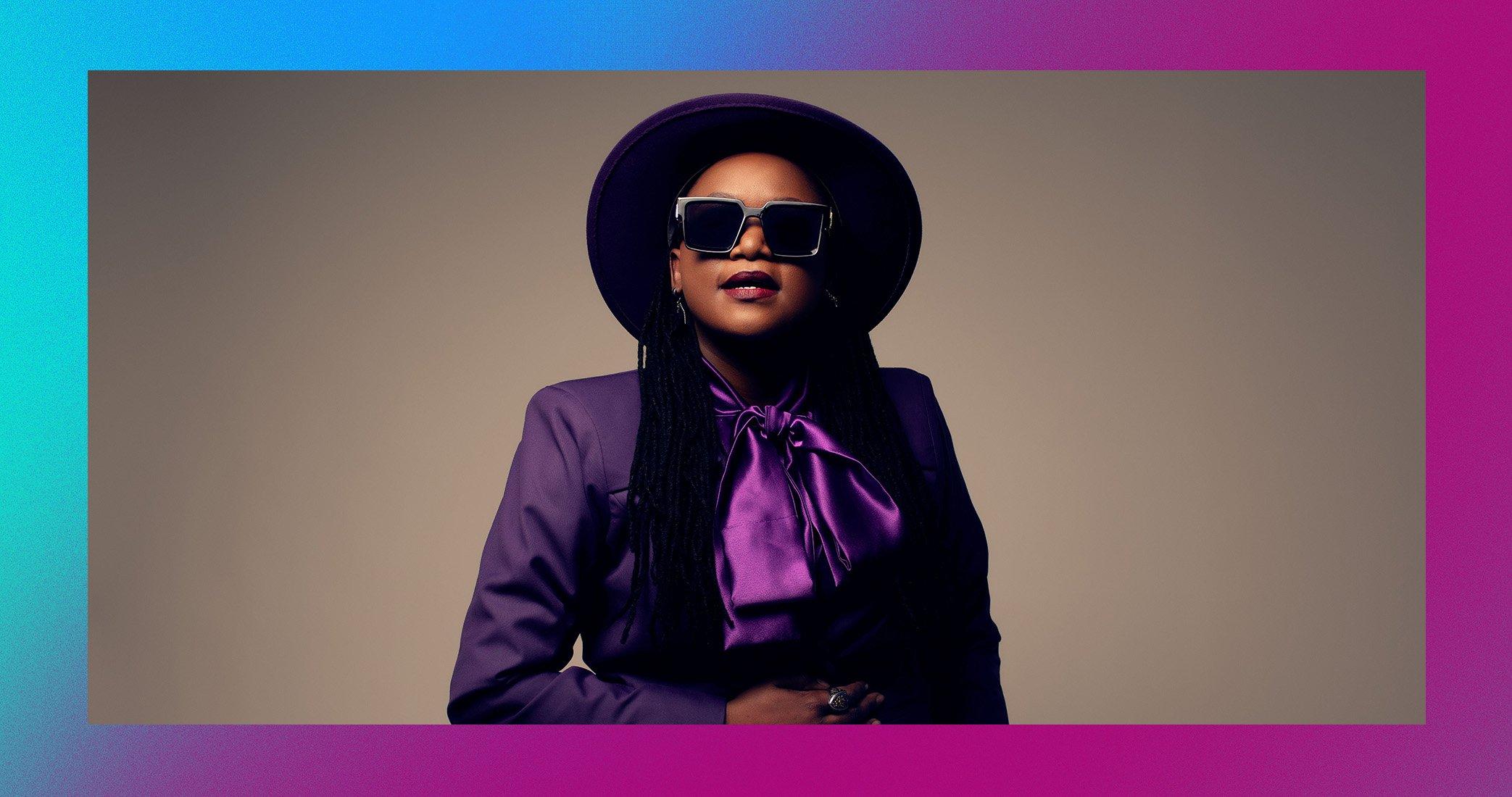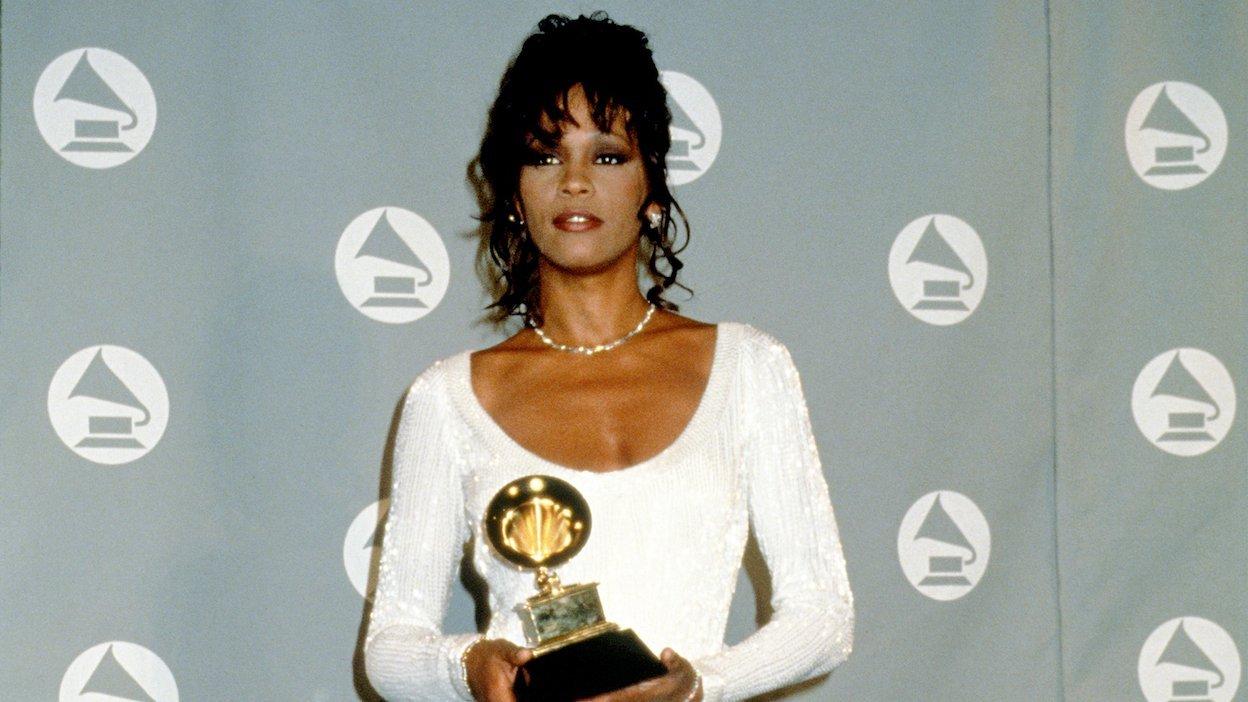Photo: Gamble Huff Entertainment

Kenny Gamble and Leon Huff
news
Gamble And Huff Talk 50 Years Of Philly Soul & Creating Black Music Month
Hear from the legendary GRAMMY-winning songwriter/producer duo Kenny Gamble and Leon Huff themselves about creating Philadelphia International Records, Black Music Month and a lifelong friendship
By 1971, prolific songwriters/producers Kenny Gamble and Leon Huff had a catalog of R&B and pop hits including The Soul Survivors "Expressway to Your Heart," The Intruders "Cowboys to Girls," and Jerry Butler's "Only the Strong Survive," and a network to help move the product released by their number of boutique record labels. But minor success wasn't enough for the inseparable twosome, so they longed for an opportunity to bridge their love of music, humanity and keeping their ear to the streets under a larger brand, for a broader audience.
Their ship eventually came in. Gamble and Huff landed a deal with Clive Davis, then CBS Records president, to house their label, Philadelphia International Records, and its signature "Philly Sound." The GRAMMY-winning musical pair recorded out of Sigma Sound Studios, accompanied by their 40-piece orchestra, MFSB. The Rock & Roll, Dance, and Songwriters Hall of Fame inductees assembled an impeccable roster of talent like The O'Jays, The Three Degrees, The Intruders, Billy Paul, Harold Melvin & the Blue Notes, Teddy Pendergrass, The Jacksons, Lou Rawls, The Jones Girls, Patti Labelle, Phyllis Hyman, and McFadden & Whitehead. The creators additionally wrangled an in-house slate of songwriters, producers and engineers including Thom Bell, Bunny Sigler, Linda Creed, Bobby Martin, Joe Tarsia, Dexter Wansel, and Cynthia Biggs.
Gamble and Huff's lush arrangements, danceable grooves, precise rhythms, and stellar vocal production were the basis for classics like "Back Stabbers," "For the Love of Money," "TSOP (The Sound of Philadelphia)," "Wake Up Everybody," "Love Train," "If You Don't Know Me By Now," "Don't Leave Me This Way," "You'll Never Find Another Love Like Mine," and "Me and Mrs. Jones." Owning the second largest Black-owned music brand by 1976, Gamble became a co-founder of Black Music Month three years later.
This year, Philadelphia International Records has released two limited edition vinyl sets (including a rare 1973 concert in San Francisco featuring its full artist roster) and landed partnerships with Pandora and Sonos Radio HD to stream and pair selections from Gamble and Huff's catalog with stories behind their compositions. Another eight-CD set features all of their label's first full-length LPs remastered. Each month concentrates on a theme related to Philadelphia International. During the coronavirus pandemic, Gamble hosted his own weekly Facebook podcast, "Message in the Music," and even joined Huff for periodic Clubhouse panels. A feature documentary and Broadway production spotlighting Gamble and Huff's impact are on the horizon.
Gamble and Huff, who originally met in an elevator over six decades ago, recently sat with GRAMMY.com to reminisce about their storied career, the key to their friendship, and staying relevant.
How does that feel commemorating a 50-year legacy this year?
Gamble: Fifty years is only part of it; that's when we started Philly International, but Gamble and Huff have been rollin' since 1963, '64, somewhere around there. It's a good thing. There were a lot of people that participated in that; many of them are not here anymore. It gives me real good memories of the past, but the future looks even brighter to me.
Huff: It's bright because I heard that music all day over the last two to three days. I'm in the doctor's office gettin' a colonoscopy, and on the radio comes [sings] "You'll Never Find." I'm in the grocery store afterwards, and [sings] "Me and Mrs. Jones" comes on through the monitor. The music is everywhere. [Laughs.]
Gamble: You sound a little bit like Billy [Paul] there, brotha. You sound good. [Smiles.]
What's the story behind the Philadelphia International Records logo?
Gamble: That logo is really the yin and the yang, but it's a rectangle. The guy that worked with us at CBS Records was named Ed Lee; he was an Asian brotha. He did just about all of our album jackets; he's the one that suggested the colors. They kinda reminded you of the freedom colors: the red, the black and the green. It just caught on because I see it all the time on commercials; it's really distinctive. The colors stand for the beginning and the end.
Did you have a writing process?
Huff: The piano was in Gamble's office, so that's where we created most of the songs. The writing process for Gamble & Huff was scientific. That piano was rigged to a point where it sounded like something else. I went and got some thumb tacks that I put behind all of the hammers: 88 behind each one of them. When the thumb tacks hit the strings, it created a whole different sound. Of course, the front and the top of the piano were off, so that music came blastin' outta like you've never heard before.
Gamble was sitting beside me, and we had a tape recorder playing all of the time because most of the song titles come from everyday life: slogans that people would say like "When Will I See You Again?" "Me and Mrs. Jones" played out right before our eyes. We were like movie directors. That's the way Gamble wrote those lyrics. We paid attention to the news and current events; we talked about everything, so that's what we wrote about—relationships, the community, the world. The music of Gamble & Huff soothed the savage beast.
Gamble: We were coming up with stuff. If you just say a certain word, BOOM! It might become a song.
Watch: Black Music Month: Celebrating Black Fashion At The GRAMMYs Throughout The Decades
What role did you play in the creation of Black Music Month?
Gamble: We had an organization with all of the disc jockeys that we'd been working with around the world called the Black Music Association; we were creating a communications network between all of the Black disc jockeys, artists, show promoters, etc. One day we were talking about October being Country Music Month; I asked how come there's no Black Music Month? Everyone was asking what month; I said June.
With Black Music Month, we came up with a slogan: Black Music is green, which means economics. It's about money. Today, I'm just overjoyed to see how many people are participating in it now. There was a time when Huff and I were coming up when you couldn't put an album or single out with Teddy Pendergrass on the cover because record shops and promoters wouldn't even put him in the window. They didn't put no Black people on the covers. We were fortunate enough to come up in a time where we could put Teddy Pendergrass or Harold Melvin & the Blue Notes out. What we contributed, and we were with CBS Records at the time, was getting distributors to see that Black music was an economic issue. Young people were buying these albums left and right; it wasn't just singles that Black people were buying.
When we had the first convention in Philadelphia [in 1979], Stevie Wonder and Bob Marley performed together. It was amazing; we must've had about 1,000 people at that first thing because it was business. How you take the fun, joy and laughter is good, but at the end of the day, how many jobs are you producing from this industry from African American music? So many spokes in that wheel: from manufacturing, distribution to everything that you can think of.
We had a great group of people like Clarence Avant working with us. We had just about everybody in the whole industry working with us. It sounded right, and it was right to do this. Clarence Avant knew this guy in Atlanta who knew President Jimmy Carter. He asked Carter if he would entertain Black Music Month at the White House. Carter did it; we all went down there [in 1979]. Huff and I went down there with all of our crew from Philly. I don't think they ever had that many Black people in the White House. We had all of the Black disc jockeys like Frankie Crocker. We had everybody: Billy Eckstine, Evelyn "Champagne" King performing and Barry White. It was a great thing to see our people working together. Jimmy Carter was sitting on the grass. It was nice. It was beautiful.
"When me and Huff are doing these interviews together, it always opens up something in my mind that allows me to see the bigger picture in these 60 years that we've been working together...That's a long time, and it brings back a lot of emotions." Kenny Gamble
Is it overwhelming utilizing the various digital and new media platforms to share that music and history?
Gamble: Overwhelming is the right word; I say to myself this is a lot. I'm an old man; I ain't no young boy no more. It's nice working with all of the new outlets and social media. I do have to admit that it is tiring sometimes; it's a whole lot of talking and doing interviews, but it gives me a lift though.
When me and Huff are doing these interviews together, it always opens up something in my mind that allows me to see the bigger picture in these 60 years that we've been working together. I was 23, 24 years old, fresh outta high school, when Huff and I started working. That's a long time, and it brings back a lot of emotions. As long as we can do something that's positive and add to everything, I'm willing to do as much as I can to keep it going. There's a whole lot there.
Is there talk of both a feature documentary and a Broadway production to chronicle Gamble and Huff's story?
Gamble: Our team is talking about it now. It'll be great if they do it because not only did we write songs about it, but we actually really did do our part: cleaning up the community and helping out. Don't take for granted everything that you have in this physical world; you can do something more important than that. So many young people need guidance; we all need guidance. I need guidance.
Gamble and Huff | Photo: Vernon Smith
How do you nurture your friendship outside of your creative and professional relationship?
Huff: It's about growth, loyalty and respect; me and Gamble grew together. You have to really like a person to really want to be around them all of the time. That's really how it started. I was coming over from Camden, New Jersey; Gamble's from Philly. I couldn't wait to get over with Gamble; he introduced me to a lot of new musicians I was ready to play with and that taught me a lot. It was just the joy of being together. I had pure laughter when we were collaborating. I sit now and think about it; it was a wonderful time. Me and Gamble hung out in clubs; we're joined at the hip. We were in a creative zone that was scary. It really was. It was something I wished we could've filmed; it would've been something sacred.
"It was just the joy of being together. I had pure laughter when we were collaborating. I sit now and think about it; it was a wonderful time." Leon Huff
What are you most proud of?
Huff: I'm still alive, healthy, hearing my music, and playing the piano. Not like I used to, but I still play. I'm proud of our success; I thank God for it everyday.
Gamble: As long as you're doing good, it's alright. Your heart and soul has to be in it. Philadelphia International was an example of doing good business and living up to our word. When we commit ourselves to something, we actually fulfill our commitments so people won't have anything ill to say about us.
Black Sounds Beautiful: How Aretha Franklin Ascended To Soul Royalty

Photo: Jeff Kravitz/FilmMagic
video
GRAMMY Rewind: Kendrick Lamar Honors Hip-Hop's Greats While Accepting Best Rap Album GRAMMY For 'To Pimp a Butterfly' In 2016
Upon winning the GRAMMY for Best Rap Album for 'To Pimp a Butterfly,' Kendrick Lamar thanked those that helped him get to the stage, and the artists that blazed the trail for him.
Updated Friday Oct. 13, 2023 to include info about Kendrick Lamar's most recent GRAMMY wins, as of the 2023 GRAMMYs.
A GRAMMY veteran these days, Kendrick Lamar has won 17 GRAMMYs and has received 47 GRAMMY nominations overall. A sizable chunk of his trophies came from the 58th annual GRAMMY Awards in 2016, when he walked away with five — including his first-ever win in the Best Rap Album category.
This installment of GRAMMY Rewind turns back the clock to 2016, revisiting Lamar's acceptance speech upon winning Best Rap Album for To Pimp A Butterfly. Though Lamar was alone on stage, he made it clear that he wouldn't be at the top of his game without the help of a broad support system.
"First off, all glory to God, that's for sure," he said, kicking off a speech that went on to thank his parents, who he described as his "those who gave me the responsibility of knowing, of accepting the good with the bad."
Looking for more GRAMMYs news? The 2024 GRAMMY nominations are here!
He also extended his love and gratitude to his fiancée, Whitney Alford, and shouted out his Top Dawg Entertainment labelmates. Lamar specifically praised Top Dawg's CEO, Anthony Tiffith, for finding and developing raw talent that might not otherwise get the chance to pursue their musical dreams.
"We'd never forget that: Taking these kids out of the projects, out of Compton, and putting them right here on this stage, to be the best that they can be," Lamar — a Compton native himself — continued, leading into an impassioned conclusion spotlighting some of the cornerstone rap albums that came before To Pimp a Butterfly.
"Hip-hop. Ice Cube. This is for hip-hop," he said. "This is for Snoop Dogg, Doggystyle. This is for Illmatic, this is for Nas. We will live forever. Believe that."
To Pimp a Butterfly singles "Alright" and "These Walls" earned Lamar three more GRAMMYs that night, the former winning Best Rap Performance and Best Rap Song and the latter taking Best Rap/Sung Collaboration (the song features Bilal, Anna Wise and Thundercat). He also won Best Music Video for the remix of Taylor Swift's "Bad Blood."
Lamar has since won Best Rap Album two more times, taking home the golden gramophone in 2018 for his blockbuster LP DAMN., and in 2023 for his bold fifth album, Mr. Morale & the Big Steppers.
Watch Lamar's full acceptance speech above, and check back at GRAMMY.com every Friday for more GRAMMY Rewind episodes.
10 Essential Facts To Know About GRAMMY-Winning Rapper J. Cole

Photo: Steve Granitz/WireImage
video
Black Sounds Beautiful: How Lil Nas X Turned The Industry On Its Head With "Old Town Road" And Beyond
In this episode of Black Sounds Beautiful, relive Lil Nas X's massive debut, "Old Town Road," and learn how he's since been an advocate for Black and LGBTQIA+ communities through his music and his platform.
Lil Nas X became a global sensation practically overnight, but it wasn't an accident.
The American singer and rapper — born Montero Lamar Hill — became fluent in music and pop culture at an early age, becoming a meme aficionado. His love for internet culture cultivated the perfect recipe for his debut single, "Old Town Road," to become one of the most viral hits in music history; the song also prompted a necessary conversation about the bounds of genre.
"Old Town Road" rose to the top of the Billboard Hot 100 chart, and still holds the record for most time spent at No. 1 at 19 weeks. The single later helped Lil Nas X snag two GRAMMY Awards for Best Pop/Duo Group Performance and Best Music Video. (To date, he's won 2 GRAMMYs and has received 11 nominations overall.)
Aside from his immense musical talent, Lil Nas X — who came out as gay on social media during his Hot 100 reign — has been a fierce champion for LGBTQIA+ and Black communities.
"It's just acceptance of gay people. And they see that as a bad thing, like, They're trying to normalize it. You know what? Yeah. That's actually what I'm trying to do," he told GQ in 2021.
At just 24 years old, Lil Nas X has plenty more history-making and game-changing moves in store. As he revealed during his March 2023 campaign with Coach, "My next big chapter is coming."
Press play on the video above to learn more about Lil Nas X's industry-altering career, and check back to GRAMMY.com for more new episodes of Black Sounds Beautiful.
The Evolution Of The Queer Anthem: From Judy Garland To Lady Gaga & Lil Nas X

Photo: VisualsbyBO
video
Positive Vibes Only: Fena Gitu Shows Her Appreciation For What "Love Is" In This Intimate Performance
Kenyan Afropop singer Fena Gitu is grateful for everything — from God to her jewelry — in her latest single, "Love Is."
Kenyan singer Fena Gitu is grateful for the little things — down to her fake jewelry. And through an odyssey of gratitude, she's learned to love everyone, to create a more peaceful world.
In this episode of Positive Vibes Only, Gitu delivers a stripped-down performance of her new single, "Love Is," a musical expression of her appreciation for everything around her. For Gitu, loving is minimalistic — and that message is only made more clear from the simplistic setting of this keyboard-driven performance.
"For my God, I stand, give him all my praises/ That I get to live to see another day, yes/ For my fake gold diamond pieces/ I just really want to thank you, Jesus," Gitu declares. "God is love, and love is true/ Love is You."
"Love Is" is the lead single from Gitu's latest album, Love Art Lust, which arrived on June 2. "It's a journey in love. Love for yourself, love for others, and love for God," she explained in a press statement. On June 29, she will return to her hometown of Nairobi, Kenya for a special performance celebrating the album's release.
Press play on the video above to watch Fena Gitu's sentimental performance of "Love Is," and check back to GRAMMY.com for more new episodes of Positive Vibes Only.

Photo: Robin Platzer/IMAGES/Getty Images
video
GRAMMY Rewind: Whitney Houston Admires Dolly Parton After "I Will Always Love You" Wins In 1994
Whitney Houston had the chance to thank Dolly Parton — who wrote "I Will Always Love You" — for "writing beautiful songs" during her acceptance speech for Best Pop Female Vocal Performance.
Nearly 50 years after its initial release, Dolly Parton's "I Will Always Love You" has been covered by thousands of musicians. But no other rendition compares to Whitney Houston's iconic 1992 cover for the Bodyguard soundtrack — and in 1994, the two shared a full-circle celebration of the song's massive success.
In this episode of GRAMMY Rewind, relive Houston's Best Female Pop Vocal Performance win for her version of "I Will Always Love You" at the 1994 GRAMMY Awards.
"Dolly, of course, coming from you, this is truly an honor. You wrote a beautiful song. Thank you so much for writing such beautiful songs," Houston said to Parton, who presented the award and originally released the recording (which she wrote herself) in 1974.
Houston praised Rickey Minor, her band, and David Foster, who helped Houston arrange the ballad. "All the songwriters and producers on The Bodyguard, BeBe [Winans], I love you," she added before performing an impromptu song to thank her team members at Arista Records.
"I love you, Mommy and Daddy — I wouldn't be here without you. And always first in my life, I thank my Father, Jesus Christ. Without them, I am nothing," Houston said. Before leaving the stage, Houston took a second to uplift her supporters. "To all the fans, I love you! Thank you, and God bless you!"
"I Will Always Love You" also took home Record Of The Year that night, and The Bodyguard won Album Of The Year — one of only four soundtracks to date to win the coveted award.
Press play on the video above to watch Whitney Houston accept her award for Best Female Pop Vocal Performance at the 36th Annual GRAMMY Awards, and check back to GRAMMY.com for more new episodes of GRAMMY Rewind.
